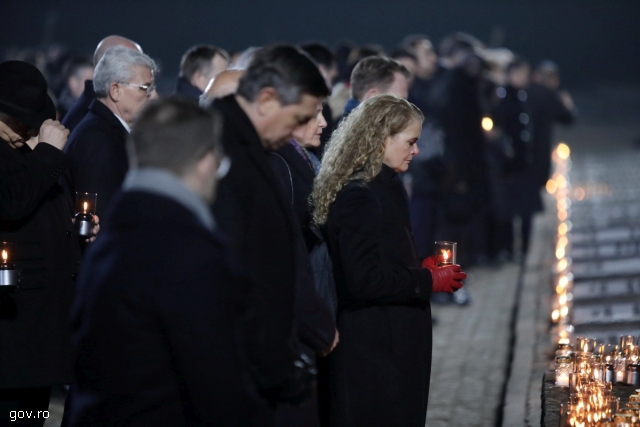Auschwitz, 75 years on
Poland hosted the official ceremony marking 75 years since the liberation of the Auschwitz-Birkenau concentration camp

Mihai Pelin, 28.01.2020, 14:00
Although 75 years have passed since Soviet troops liberated the biggest Nazi
extermination camp in southern Poland, Auschwitz-Birkenau, the authorities are
still trying to ascertain the identity of the over a million victims. Dubbed
the most sinister death factory, the camp was originally designed in 1940 to deal
with the enemies of Adolf Hitler’s regime, whether real or fabricated. In the
summer of 1944, the camp spread over 40 square kilometers. Overall, six million
Jews died in the Second World War, fallen victims to Germany and its
satellites. A few hundreds of thousands of them were born in Romania. Some of
these were deported to Transdniestr by Marshal Ion Antonescu, a close ally of
Nazi Germany. Others were sent straight to the Nazi extermination camps by the
Hungarian fascist regime, occupying northwestern Transylvania. Attending
official ceremonies in Auschwitz on Monday, also marking the International
Holocaust Remembrance Day, Romania’s Prime Minister Ludovic Orban said that, as
a member of the EU, Romania promotes tolerance among people, non-discrimination
and peace, keeping an active stance in the process of preserving and consolidating the memory of the Holocaust. In Bucharest, President Klaus
Iohannis, who last week attended the World Holocaust Forum in Israel, decorated
several Jewish and Roma Holocaust survivors. Klaus Iohannis:
The unspeakable horrors endured by
the Roma community in our country in the concentration camps in Trandniestr are
insufficiently known and mentioned. It is time we bring the Roma Holocaust to
the public fore and honor the survivors, each of whom speaks of the power of
humanity over racism and xenophobia.
The President of the Federation of
Jewish Communities in Romania, Aurel Vainer, argued the decorations are
evidence of Romania’s aggressive stance against anti-Semitism.
This decoration holds great
historical significance, not just emotional, it confirms that in present-day
Romania, we, Jews, are enjoying every right and obligation bestowed on us. It
is a model of behavior towards Jews and an exemplary aggressive attitude
against anti-Semitism, racism and xenophobia.
Constantin Braila, a Roma Holocaust
survivor, was deported to Transdniestr in 1942. He recalled all the suffering
he experienced.
We slept on the floors, we hadno
sort of bedding. We slept on corn cobs. Our food rations amounted to 250g a
day, and it wasn’t vegetables, but barley flour. We worked day and night, in
three shifts.
Other institutions that played a
major role in preserving the memory of the Holocaust, as well as people who
survived this tragic chapter in history, were also decorated.
(Translated by V. Palcu)






























